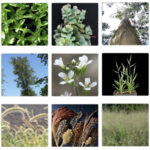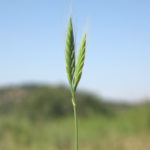The projects of 23 Biosciences Area scientists and engineers received funding through the FY25 Laboratory Directed Research and Development (LDRD) program.
JGI, JBEI Partner on Successful RENEW Proposals
The Joint BioEnergy Institute (JBEI) and the Joint Genome Institute (JGI) are partners on three proposals recently selected to receive funding through the Department of Energy (DOE) Reaching a New Energy Science Workforce (RENEW) initiative. The initiative will support internships, training programs, and mentoring opportunities.
A JGI Collaboration to Improve Plant Genome Annotations
To provide broad plant genomic capabilities, the DOE Joint Genome Institute works in partnership with the HudsonAlpha Institute for Biotechnology, which specializes in genome improvement for plants. As part of that partnership, the JGI and HudsonAlpha researchers led a team that recently published work on the JGI Plant Gene Atlas in Nucleic Acids Research. Learn more on the JGI website.
From the Molecular to the Mesoscale: The EcoPOD Provides A New Way to Link Plants, Soil, and Microbes
On May 25, Berkeley Lab and Biosciences Area leadership officially welcomed the EcoPOD to its home at Potter Street in West Berkeley. The Lab’s Deputy Director for Research Horst Simon and Associate Laboratory Director for Biosciences Mary Maxon opened the doors of the EcoPOD after Maxon cut the ceremonial ribbon.
JGI Helps Make Case for Plant Pan-genomes
Flowering plants abide by the concept, “the more the merrier,” with respect to their genomes. In their base state, they are diploids with two genome copies, one from each parent. Having three or more genome copies from additional parents or duplication, also known as “polyploidy,” is common amongst flowering plants. Crop breeders have harnessed polyploidy to increase fruit and flower size, and confer stress tolerance traits. In Nature Communications, a multi-institutional team led by researchers at Spain’s Universidad de Zaragoza and the DOE Joint Genome Institute (JGI) relied on a model grass system (Brachypodium) to learn more about the origins, evolution and development of plant polyploids. Read more on the JGI website.
Was this page useful?








